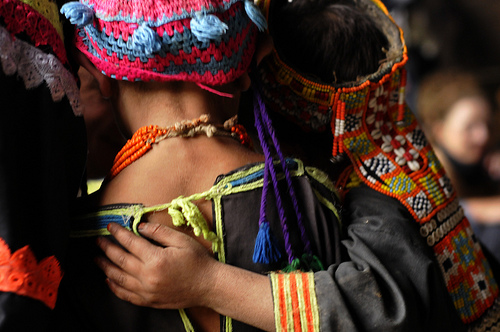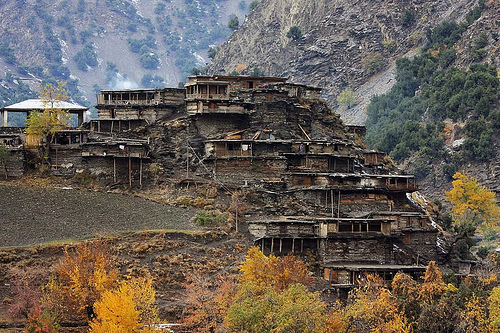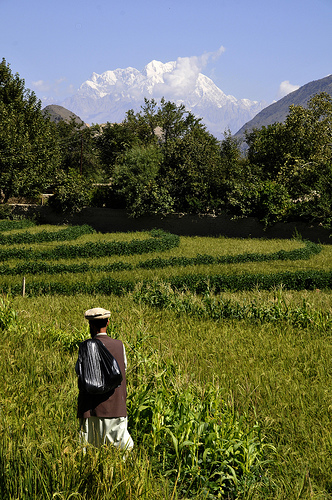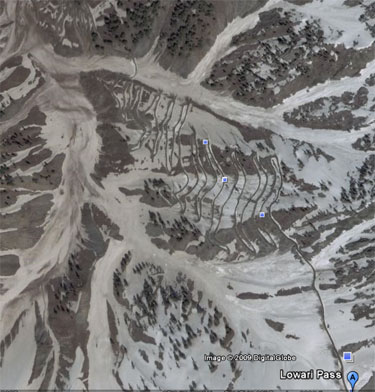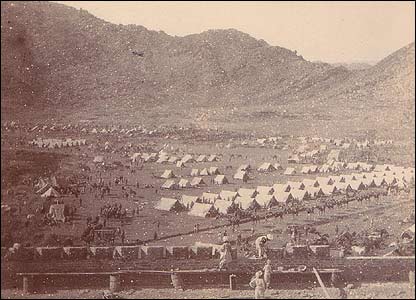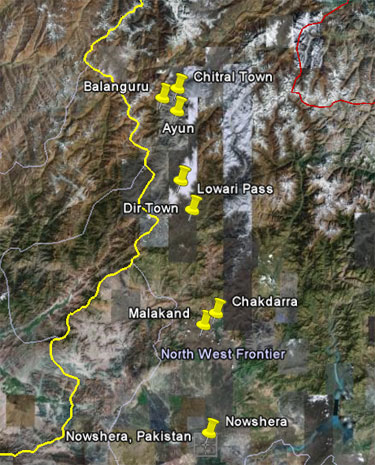Bantam
May 19, 2009
Mass Market Paperback
ISBN-13: 9780553592436
ISBN-10: 0553592432
Order Ebook:
Not Quite a Husband
Read an Excerpt »
Order the Book »
International Editions »
 NOT QUITE A HUSBAND is the 2010 RITA® Award recipient for Best Historical Romance.
NOT QUITE A HUSBAND is the 2010 RITA® Award recipient for Best Historical Romance.Their marriage lasted only slightly longer than the honeymoon—to no one's surprise, not even Bryony Asquith's. A man as talented, handsome, and sought after by society as Leo Marsden couldn't possibly want to spend his entire life with a woman who rebelled against propriety by becoming a doctor. Why, then, three years after their annulment and half a world away, does he track her down at her clinic in the remotest corner of India?
Leo has no reason to think Bryony could ever forgive him for the way he treated her, but he won't rest until he's delivered an urgent message from her sister—and fulfilled his duty by escorting her safely back to England. But as they risk their lives for each other on the journey home, will the biggest danger be the treacherous war around them—or their rekindling passion?
Share:
Watch the Trailers
Holy Cow! Two trailers? But of course. :-)
The Story about the Story
The Text Trailer | The Journey | Trivia | NQAH: A Visual Guide
The Text Trailer
In the months leading up to NOT QUITE A HUSBAND's release date, Sherry had fun whetting her readers' appetites with snippets from the book. The excerpt on this page gives the opening of the book. But she wanted to offer some more bits and pieces, such as what readers might come across if they opened NOT QUITE A HUSBAND to a random page.
From Gilgit east to Leh, then from Leh back through Gilgit to Chitral and the Kalash Valleys: It must be close to a thousand miles. A thousand miles over a roadless land that was full of teeth and serrated spine, where even the flat stretches were fragmented and disjointed. She did not know it was possible to make this trek in under fifty days.
And he would have had to be minimally equipped, with probably only a guide to show him the way, for it was definitely not possible to achieve such speed with coolies, cooks, tents, and beds.
"How?" she asked, in sheer puzzlement. And then, more importantly. "Why? Why did you do it?"
"Why did I do it?" he echoed her question, as if surprised by it.
"Yes. Why not tell Callista to go to the devil?"
He chortled, a sound that contained more scorn than mirth. "Callista knows how to pick her fools, apparently."
Leo did not even realize he'd been injured until not one, but two sepoys sprang forward to help him dismount. Only then did he look down at himself and see blood everywhere. Bryony took one look at him, swayed, and gripped the saddle for support.
He smiled weakly at her. "Don't tell me you faint at the sight of blood."
"Of course not," she said. "I only faint at the sight of your blood. You idiot, why didn't you shoot at them?"
"I didn't want them shooting back at us." He could protect her from swords better than he could from bullets.
Bryony felt it in her stomach, the keen pitch of interest around the table, including her own—she had no idea what he could possibly say. But he was in no hurry to gratify the collective curiosity. With great leisure, he finished the remainder of the cake on his plate.
He reached for his glass of whiskey. Instead of lifting it, however, he only turned it a few degrees by its base. For the first time, she noticed the condition of his hands. When they'd been married, he'd had very fine, gentlemanly hands. Today his fingers were rough and chapped, with faint cuts and bruises along his knuckles.
But then he smiled at his audience and she forgot all about his hands, for it was a smile that conquered, as sweet as it was merciless. With that smile came a light in his eyes, an irresistible light: This was the Leo who had taken London by storm.
The tent was warm and dimly misty with steam from the bath. Her face was dewy and flushed. He licked the back of his teeth. He wanted to lick her teeth: There was a slight chip to her front tooth that he'd wanted to lick since he sat down to dinner that first night at her father's town house.
He lifted his hand and undid the top button of her blouse. She rose immediately, knocking over the stool.
"Please don't do that."
He watched her go. "Now why did we never play chess?" he murmured.
The question was addressed more to the river and the sky than to her. But she stopped, her head turned, her profile perfectly limned for a moment against the purple shadow of the mountain. A strand of hair fluttered against her lips. Then she went on, without offering any answers.
His hat sat at a careless angle on his head. His clothes could surely use a thorough ironing. And he seemed far too fatigued to be awake, let alone standing—she was very glad she'd chosen to limit his exertion by refusing to ride more than twenty miles. But she could not stop looking at him, standing there, peeling his pear, his jacket hanging loosely about his frame. And she could not help feel for him something close to tenderness, as if he were a weary, lost stranger Fate had cast at her doorstep.
"Did I not warn you about this desk and the iniquity it inspires? You should have left when you could. It's too late now."
He whispered those last words almost directly against her lips. Her heart slammed, like an unsecured shutter in a windstorm. Very, very far away in the drawing room someone more ambitious than talented launched into the opening bars of Beethoven's Fifth Symphony. Here in a corner of the library she understood for the first time that yes, it was exactly this that she sought from him, this proximity, this great disequilibrium.
The Journey
The original inspiration for NOT QUITE A HUSBAND comes from the 2007 movie The Painted Veil, starring Naomi Watts and Edward Norton. The story of The Painted Veil is that of a marriage in real trouble, a couple very much estranged who travel to the dangerous interior of China at a time of cholera outbreaks. It is one of the best romantic dramas Sherry has ever seenshe views it as a Laura Kinsale film, with complex characters, dark emotional conflict, great sexual tension, and a gorgeous backdrop. And she loved, loved, loved it up until the very end when SPOILER.... the hero dies!....END SPOILER. She came out of the movie theater shellshocked, and on the spot decided that she would write her own version of the story as her next project and give it the happy ending it so deeply merited.
Also on the spot, outside the movie theater, she made the first story choice: to reverse the gender roles—no point writing exactly the same story. In The Painted Veil, the romantic pairing is between a rather socially awkward microbiologist and the beautiful socialite he somehow manages to marry. In NOT QUITE A HUSBAND, the hero is instead the popular, desirable figure, and the heroine a socially awkward physician who somehow manages to marry him. And then, to distinguish this book from PRIVATE ARRANGEMENTS, which was also about a troubled marriage, she decided to annul Leo and Bryony's marriage at the beginning of the book, so that when they meet again, they are not an estranged couple—they are not a couple at all.
Now she needed a setting. China was taken out of consideration—again, she didn't want to slavishly copy The Painted Veil. But where? First, it needed to be some place far away from England—this relationship had ended so badly that any initial reconciliation could only happen far, far away. Second, this place had to have been dangerous at the end of the 19th century. And since Sherry has determined that the hero of NOT QUITE A HUSBAND should be DELICIOUS's Will Marsden's youngest brother, she was further restricted in the time period. Will Marsden marries at the very end of 1892. Leo Marsden comes to London in the spring of 1893 to meet his new sister-in-law, marries during that same year,then has his marriage annulled in 1894. Now the story could be set earliest in 1895 and latest in 1899—Sherry wasn't going to try a 20th century-set story until she had a little more name recognition under her belt.
The search began in earnest. Sherry's initial idea was Central Asia—she'd seen this huge desert during the plane ride from Frankfurt to India some years before and she could easily imagine the maurauding bandits it once contained. But Central Asia, it turned out, was not a likely place an Englishwoman to be living in around that time. Also, it seemed relatively calm in those years and Sherry needed some real trouble. Sherry's critique partner suggested South Africa during the Second Boer War (1899-1902). The timing was workable, but Sherry knew nothing of South Africa, and she wanted some dramatic landscape—impassable mountains, endless deserts. The topography of South Africa, from what little she knew of it, didn't seem to fit that profile. At one point she even checked out New Zealand: colonial conflicts, yes; right time, no.
Her thoughts then turned to those places that are currently hospitable to Osama Bin Laden, in the mountainous regions of Pakistan. Bad-ass terrain, yes. An armed populace, yes. A history of conflict with colonial powers, yes. On April 18, 2008, she sent the following email to Meredith Duran, whose debut historical, The Duke of Shadows, is set in India and flawlessly researched: "Would you happen to know of some good first hand account of late 19th century travelers who went to those mountainous regions in the very northwest of the Subcontinent? Like the north of Kashmir, Hindu Kush, or Pakistan's Northwest Frontier Province, or those Afghan places where Osama Bin Laden used to hide out. Not pretty places like Simla or Dharamsala, but the really difficult terrains and environments, places preferably close to the Korakoram, a plus if they are forbidding and lawless."
Meredith promptly replied, with a pdf of AN ALPHABETICAL BIBLIOGRAPHY OF BOOKS BY VICTORIAN AND EDWARDIAN WOMEN TRAVELLERS PUBLISHED BETWEEN 1837 AND 1910, which contained 1441 titles! Those women went everywhere! After a couple of hours of careful sorting through, Sherry hit research gold, with A Sportswoman in India: Personal Adventures and Experiences of Travels in Known and Unknown India, by a big-game hunter named Isabel Savory who went to India in 1899. Sherry would rely on this book to provide for the details of traveling in mountainous regions with an entourage of coolies.
Around the same time she begged Meredith for help, Sherry was also googling like mad on her own. Google Books is the best thing that ever happened to a historical researcher. And Sherry was lucky to come across The Risings on the North-West Frontier, which detailed a spate of uprisings that happened from 1897-98 at the very extremity of the British Raj. Even better, she discovered a book that dealt in depth with the Swat Valley Uprising of 1897, The Story of the Malakand Field Force, written by none other than Winston Churchill himself, as a very young journalist.
With the setting in place, early in May of 2008, she wrote a 2,500 opening for the book, to be included as a preview at the end of DELICIOUS. Amazingly enough, given that DELICIOUS went through five openings, the opening for NOT QUITE A HUSBAND remained essentially the same throughout. The rest of it, however, was a different story.
The preview had set out a dark and intense conflict. After the high-and-low search for a conflict during the writing for DELICIOUS, Sherry thought she had it made. But as it turned out, she had a hard time calibrating the interaction between Leo and Bryony, precisely because the conflict was so intense. How would they behave toward each other? How would their relationship move forward at all?
The secondary romance was also not helpful. Sherry had paired together Callista, Bryony's sister, with Freddie from PRIVATE ARRANGEMENTS—NOT QUITE A HUSBAND was going to be a mini-reunion of all her previous lead characters. It started promisingly enough, with Freddie looking at Gigi across a ballroom, Callista deciding that she was no longer content with loving him unrequitedly and meeting with Camden to figure out how best to court Freddie. And then it all fizzled.
Sherry would go over the first half of NOT QUITE A HUSBAND five times. She'd thought she could easily complete it ahead of deadline and proclaimed end of September to her editor as when she would turn in the book. End of September came and went. End of October came and went. Finally, toward the end of November, she completed a draft with half a secondary storyline and handed it in.
Her editor's verdict? Not good. How not good? Like the first draft of DELICIOUS. Now since the first draft of DELICIOUS was absolute garbage, this was devastatng indeed. And there was further bad news. Besed on her overconfident prediction of end of September as when the first draft would be completed, Bantam had set a pub date of May 19, 2009. A substantial overhaul was needed, but it had to be completed by the end of 2008, or the pub date would have to be moved.
Sherry wandered around her house, shellshocked, for half a day. After that there was nothing to do but get to work. She rewrote and revised for eighteen hours a day for three weeks, fixing structural problems, pacing problems, motivation problems. In the beginning she had no feel for the new draft at all. But by the end she couldn't see how the book could have been written any other way.
As always, her editor provided invaluable insight and direction. As always, her husband took the children and the house well in hand, so she could fight her way through this manuscript. And as always, Sherry was beyond grateful. And embarrassed to once again put herself, her editor, and her husband through all this upheaval—which thankfully lasted only three weeks—but was still plenty upheaval-ous!
But at least the book turned out well!
Trivia
Sherry picked the title NOT QUITE A HUSBAND, a factually accurate description of the book, out of a line-up of titles originally proposed for PRIVATE ARRANGEMENTS. Her editor's reaction was an unambiguous no: NOT QUITE A HUSBAND had made it into the first line-up over her strenuous objection. The only other thing Sherry could think of was UNTIE MY HEART, which is already the title of a well-known Judith Ivory book. So she looked up an online thesaurus for "untie" and chuckled over wild and original possibilities such as UNCLOG MY HEART. But then came the word "unlock". She loved UNLOCK MY HEART, such a thematically accurate description of the story. Her editor loved it. Her agent proposed UNCHAIN MY HEART, which Sherry loved even more—though her critique partner Janine warned that it might lead people to expect a certain degree of S&M. But in the end, marketing liked NOT QUITE A HUSBAND best so NOT QUITE A HUSBAND it was. :-)
Sherry doesn't know a rook from a bishop. So she borrowed her chess moves from a famous 19th century match between Paul Murphy and Adolf Anderssen.
NQAH: A Visual Guide
NOT QUITE A HUSBAND starts in Rumbur Valley, on the North-West Frontier of British India. (Okay, it actually starts in England, but that's the prologue.) Rumbur Valley is one of the three valleys known as the Kalash Valleys, so called because of their unique Kalasha population.
The Kalasha are a tribe of pagans who worship a pantheon of gods. They believe themselves to have descended from the soldiers of Alexander the Greek—and it is not unusual to find among the Kalasha fair hair and blue/green eyes. Unlike the Kafirs of Afghanistan who were forcibly converted to Islam in mid-1890s by the Amir of Kabul, the Kalash Valleys happened to fall on the British side of the Durand Line, and the Kalasha were allowed to continue in their ancient beliefs first under the British, then later under the constitution of Pakistan.
Kalasha women's costume is quite distinctive: black robe riotously embroidered, thick strands of beaded necklace, and headdress decorated with cowry shells.
Image by Dave Watts
Image by Dave Watts
A typical Kalasha village, with rectangular houses stacked on top of one another.
Image by Yodod
Leo and Bryony leave Rumbur Valley, following the flow of the Rumbur River. Now they are in Chitral Valley. Chitral is a strategic forward hold for the British, who feared that the Russians could sweep down any moment and contest their crown jewel, India.
Chitral Valley is dominated to the north by the Tirich Mir, the highest peak of the Hindu Kush. Leo and Bryony, however, would only see the Tirich Mir when they look backward, as they are headed not north, but south, toward the plains of India.
Image by Dave Watts
To get out of Chitral Valley, Leo and Bryony brave Lowari Pass, elevation 10,230 ft. The steep mountainside leading up to the pass can only be negotiated via a series of hair-pin turns.
Image by Rchughtai
The above image actually shows the descent side of the pass, which is not as steep and dramatic as the ascent side. Here's an aeriel view of the ascent toward Lowari Pass. Notice all the zigzags.
Once they have crossed Lowari Pass, they move ever closer to Swat Valley.
Swat Valley is called the Switzerland of Pakistan—please do yourself a favor and look at these spectacular pics here. Yet Swat Valley was nothing less than spectacularly dangerous in the summer of 1897. Inspired by the exhortations of a certain Mad Fakir, its population rose in a swift, powerful rebellion that caught the local British garrison by the short hairs. The flash point of the conflict would center on the British installation at Malakand, and its outpost, the fort at Chakdara. Below is an old photograph of the British encampment at Malakand.
To see the fort at Chakdara, a major setting in NOT QUITE A HUSBAND, click here.
Route Map (Or whatever I could get off Google Earth):
Their journey started in the Kalasha village of Balanguru. Nowshera is where they could get on the train. The yellow line is the Afghanistan boundary. The red line is the boundary between NWFP and FANA.
Reviews
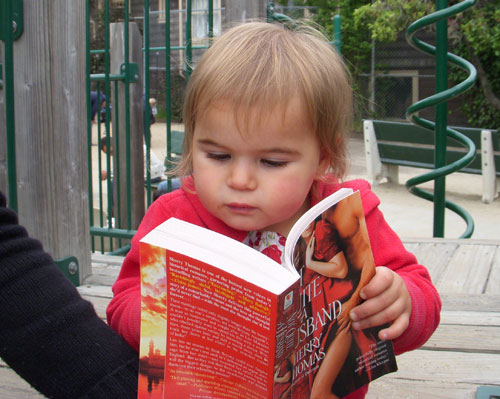
"Thomas' latest exquisitely crafted historical, set in late 19th century India on the eve of rebellion, is another beguiling mix of complex characters and realistically complicated romance."
— Chicago Tribune
"Not Quite a Husband has everything I want from a romance (well, except a map ...): Delightful but flawed characters I love and can identify with, luscious prose, an interesting setting, and a romance that touches my heart. I can't recommend it enough, and am looking forward very much to Sherry Thomas's next book."
— All About Romance Desert Isle Keeper Review
"I urge you to pick up a copy of Not Quite a Husband and see why Sherry Thomas has built such a big fan base with only three books so far. Hers is a rare and special storytelling talent, one not to be missed."
— The Romance Reader
"Thomas, who has made a name for herself with her exquisite use of language, deftly switches between past and present in this lyrically written, emotionally captivating story graced by beautifully developed, realistically flawed characters, clear motivation, and descriptions that make late Victorian India spring to life."
— Library Journal
"Thomas has quickly become a fan favorite thanks to her wonderful storytelling and her unique ability to get into her characters' minds and our hearts."
— 4.5 Star Review and Top Pick, Romantic Times
"NOT QUITE A HUSBAND is a perfect example of intense, compelling storytelling and Sherry Thomas is truly a gifted writer who kept me engaged in a story that was mesmerizing from start to finish."
— Realms on Our Bookshelves
"The time and place of the setting is unusual, Bryony and Leo unique, their relationship thought-provoking, and the whole is highly original. You can't ask for more than that."
— Romance Reviews Today
"Nous ne pouvons qu'attendre avec la plus grande impatience la suite des ouvrages de Sherry Thomas."
— Blue Moon
"Few authors give us the big, dramatic payoff like you."
— Jane, Dear Author
"I have felt since your first book that your prose and storytelling are reminiscient of Laura Kinsale (in my eyes, there is hardly a higher compliment)."
— Jennie, Dear Author
"And how heavenly was Not Quite a Husband?"
— Courtney Milan, future historical romance superstar
"I really enjoyed Ms. Thomas' writing. I have her previous books in the TBR pile and have every intention of cracking them open as soon as I can."
— Sandy M, The Good the Bad the Unread
"If you haven't read Thomas' first two books, you need to go and get them and read them ASAP. If this is your first Thomas book, you won't be sorry."
— Lawson, The Good the Bad the Unread
"Now you see why I enjoyed this book so much? These two really reached down deep inside and planted themselves with me. I still find myself thinking of them."
— Everybody Needs a Little Romance
"Excellent historical with real bits of history, fantastic characters and a love story that deserved to be told."
— Terri, Night Owl Romance
"A turbulent and enthralling read."
— Reader to Reader
"...Not Quite a Husband pulled off just about everything perfectly, especially in terms of achieving a phenomenal overall balance between character development, an interesting setting and plot, pace and writing style."
— Lurv à la Mode
"A definite keeper for readers who want both an engrossing plot and a love story that grows and deepens in a realistic way between two people who just HAVE to find their Happily Ever After."
— Armchair Interviews
"Sherry Thomas concocts a beautiful story."
— Gossamer Obsessions
"NOT QUITE A HUSBAND is a perfect blend of romance and history featuring vivid imagery and truly indelible characters. It's a definite keeper and in two words, simply superb."
— Top Pick, Romance Reader at Heart
"...it is an unforgettable journey that is harsh, honest, and more than anything filled with the all the subtleties of love."
— Romance Junkies Reviews
"A beautifully written, deeply moving story of romantic renewal and moral repair set against the backdrop of a heartstopping journey across northwest India."
— Racy Romance Reviews (Sherry's favorite review, for the words "moral repair.")
Discussion Questions
In October 2009, a romance book club leader wrote to Sherry. The club planned to read NOT QUITE A HUSBAND that month. Would Sherry mind providing a list of discussion questions? Of course Sherry did not mind—she was vastly flattered, in fact. Not really knowing how book club questions work, She opened her copy of The Thirteenth Tale and mimicked the discussion questions that came at the end. The following is what she sent to the book club:
- 1. Much of Not Quite a Husband takes place in the distant North-West Frontier of British India. How does the faraway, inhospitable nature of the setting reflect the state of Bryony and Leo's relationship at the beginning of the book?
- 2. The story Leo tells the Braeburns in Chapter 2 about why he was in the Kalash Valleys looking for Bryony, how accurate a narrative is it of their entire acquaintance?
- 3. Bryony has lived abroad ever since the annulment of her marriage. Why?
- 4. Bryony is a physician and surgeon. How does her profession come into play in the story?
- 5. Leo sickens with malaria. How does his illnessand everything that comes with itchange their relationship?
- 6. The revelation of what lies at the root of the failure of their marriage, do you think Leo and Bryony would have remained happily married had Bryony not been call upon to perform the caesarean section that day?
- 7. Why did Bryony not act in a more decisive manner following what she'd witnessed?
- 8. Does Toddy's story help the reader better understand why Bryony is the way she is?
- 9. In Chapter 11 Bryony finally realizes that Leo has been in love with her for much of his life, long before he first registers on her radar. Does this help her forgive him? Does this help the readers forgive him?
- 10. Why has Leo always loved Bryony and why does he love her still? Conversely, does love need a reason?
- 11. Why does Leo refuse Bryony's offer of reconciliation even though he loves her?
- 12. How does the war change things? How does the war not change things, i.e., what hurdles still remain to their happiness even after they have emerged from the war?
- 13. How does Bryony's reconciliation with her father signal how far she has come as a person?
- 14. In the last part of the book, Leo and Bryony go to two different houses, their old marital residence and Leo's house in Cambridge. Why does the author feel it necessary to have them return to their old house? What do these houses represent?
- 15. Who has the greater journey in this book, Leo or Bryony?
Excerpt
Prologue
In the course of her long and illustrious career, Bryony Asquith was the subject of numerous newspaper and magazine articles, almost all of which described her appearance as "distinguished and unique, characterized by a dramatic streak of white in her midnight-dark hair."

The more inquisitive reporters often demanded to know how the white streak came about. She always smiled and briefly recounted a period of criminal overwork in her twenties. "It was the result of not sleeping for days on end. My poor maid, she was quite shocked."
Bryony Asquith had indeed been in her twenties when it happened. She had indeed been working too much. And her maid had indeed been quite shocked. But as with any substantial lie, there was an important omission: in this case, a man.
His name was Quentin Leonidas Marsden. She'd known him all of her life but never gave him a thought before he returned to London in the spring of 1893. Within seven weeks of meeting him again, she proposed. Another three months and they were married.
From the very beginning they were considered an unlikely pair. He was the handsomest, wildest, and most accomplished of the five handsome, wild, and accomplished Marsden brothers. By the time of their wedding, at age twenty-four, he'd had a paper read at the London Mathematical Society, a play staged at St. James's Theatre, and a Greenland expedition under his belt.
He was witty, he was popular, he was universally admired. She, on the other hand, spoke very little, was not in demand, and was admired only in very limited circles. In fact, most of Society disapproved of her occupation—and the fact that she had an occupation at all. For a gentleman's daughter to pursue a medical training and then to go to work every day—every day, as if she were some common clerk—was it really necessary?
There were other unlikely marriages that defied all naysayers and prospered. Theirs, however, failed miserably. For her, that was; she'd been the miserable one. He seemed scarcely affected. He had a second paper read at the mathematical society; he was more lauded than ever.
By their first anniversary things had quite deteriorated. She'd barred the door to her bedchamber and he, well, he did not wallow in celibacy. They no longer dined together. They no longer even spoke when they occasionally came upon each other.
They might have carried on in that state for decades but for something he said—and not to her.
It was a summer evening, some four months after she first denied him his marital rights. She'd returned home rather earlier than usual, before the stroke of midnight, because she'd been awake for seventy hours—a small-scale outbreak of dysentery and a spate of strange rashes had her at her microscope in the laboratory when she wasn't seeing to patients.
She paid the cabbie and stood a moment outside her house, head up, the palm of her free hand held out to feel for raindrops. The night air smelled of the tang of electricity. Already thunder rumbled. The periphery of the sky lit every few seconds, truant angels playing with matches.
When she lowered her face Leo was there, regarding her coolly.
He took her breath away in the most literal sense: she was too asphyxiated for her lungs to expand and contract properly. He aroused every last ounce of covetousness in her—and there was so much of it in her, hidden in the tenebrous recesses of her heart.
Had they been alone they'd have nodded and walked past each other without a word. But Leo had a friend with him, a loquacious chap named Wessex who liked to practice gallantry on Bryony, even though gallantry had about as much effect on her as vaccine injections on a corpse.
They'd been having excellent luck at the tables, Wessex informed her, while Leo smoothed every finger of his gloves with the fastidiousness of a deranged valet. She stared at his gloved hands, her insides leaden, her heart ruined.
"...awfully clever, the way you phrased it. How exactly did you say it, Marsden?" asked Wessex.
"I said a good gambler approaches the table with a plan," answered Leo, his voice impatient. "And an inferior gambler with a desperate prayer and much blind hope."
It was as if she'd been dropped from a great height. Suddenly she understood her own action all too well. She'd been gambling. And their marriage was the bet on which she'd staked everything. Because if he loved her, it would make her as beautiful, desirable, and adored as he. And it would prove everyone who never loved her definitively wrong.
"Precisely," Wessex exclaimed. "Precisely."
"We should leave Mrs. Marsden to her repose now, Wessex," said Leo. "No doubt she is exhausted after a long day at her noble calling."
She glanced sharply at him. He looked up from his gloves. Even in such poor soggy light, he remained the epitome of magnetism and glamour. The spell he cast over her was complete and unbreakable.

When he returned to London, everyone and her maid had been in love with him.
He should have had the decency to laugh at Bryony, and tell her that an old-maid physician, no matter the size of her inheritance, had no business proposing to Apollo himself. He should not have given her that half smile and said, "Go on. I'm listening."
"Good night, Mr. Wessex," she said. "Good night, Mr. Marsden."
Two hours later, as the storm shook the shutters, she lay in her bed shivering—she'd sat in the bath too long, until the water had chilled to the temperature of the night.
Leo, she thought, as she did every night. Leo. Leo. Leo.
She bolted upright. She'd never realized it before, but this mantra of his name was her desperate prayer, her blind hopes condensed into a single syllable. When had mere covetousness descended into obsession? When had he become her opium, her morphia?
There were many things she could tolerate—the world was full of scorned wives who went about their day with their heads held high. But she could not tolerate such pitiable needs in herself. She would not be as those wretches she'd witnessed at work, wild for the love of their poison, tenderly fueling their addiction even as it robbed them of every last dignity.
He was her poison. He was that for whom she abandoned sense and judgment. For the lack of whom she suffered like a maltreated puppy, shaking and whimpering in the dead of the night. Already her soul withered, diminishing into little more than this vampiric craving.
But how could she free herself from him? They were married—only a year ago, in a lavish affair for which she'd spared no expenses, because she wanted the whole world to know that she was the one he'd chosen, above all others.
Thunder boomed as if an artillery battle raged in the streets outside. Inside the house everything was silent and still. Not a single creak came from the stairs or the chamber that adjoined hers—she never heard any sounds from him anymore. The darkness smothered her.
She shook her head. If she didn't think about it—if she worked until she was exhausted every day—she could pretend that her marriage wasn't a complete disaster.
But it was. A complete disaster.
One small lie—This marriage has never been consummated—would free them both.
Then she could walk away from him, from the wreckage of the greatest and only gamble of her life. Then she could forget that she'd been mired in an unrequited love as unwholesome as any malarial swamp on the Subcontinent. Then she could breathe again.
No, she couldn't. She could never leave him. When he smiled at her, she walked on rose petals. The one time she'd allowed him to kiss her, for days afterward everything had tasted of milk and honey.
If she asked for and received an annulment, he would marry someone else, and she would be his wife and the mother of his children, not Bryony, forgotten and unlamented.
She did not want him to forget her. She would endure anything to hold on to him.
She could not stand this desperate, sniveling creature she'd become.
She loved him.
She hated both him and herself.

She hugged her shoulders tight, rocked back and forth, and stared into shadows that would not dispel.
She was still sitting up in bed, her arms wrapped around her knees, rocking and staring, when her maid came in the morning. Molly went about the room, opening curtains and shutters, letting in the day.
She poured Bryony's tea, approached the bed, and dropped the tray. Something shattered loudly.
"Oh, missus. Your hair. Your hair!"
Bryony looked up dumbly. Molly rushed about the room and returned with a hand mirror. "Look, missus. Look."
Bryony thought she looked almost tolerable for someone who hadn't slept in three days. Then she saw the streak in her hair, two inches wide and white as washing soda.
The mirror fell from her hands.
"I'll get some nitrate of silver and make a dye," Molly said. "No one will even notice."
"No, no nitrate of silver," Bryony said mechanically. "It's harmful."
"Some sulphate of iron then. Or I could mix henna with some ammonia, but I don't know if that will be—"
"Yes, you may go prepare it," said Bryony.
When Molly was gone she picked up the mirror again. She looked strange and strangely vulnerable—the desolation she'd kept carefully hidden made manifest by the translucent fragility of her white hair. And she had no one to blame. She'd done this to herself, with her relentless need, her delusions, her willingness to gamble it all for a mythical fulfillment conjured by her fevered mind.
She set aside the mirror, wrapped her arms about her knees, and resumed her rocking—she had a few minutes before Molly rushed back with the hair dye, before she must arrange a meeting with him to calmly and rationally discuss the dissolution of their marriage.
Leo, she permitted herself this one last indulgence, a widow at her husband's grave, sobbing his name in vain. Leo. Leo. Leo.
It wasn't supposed to end this way, Leo. It wasn't supposed to end this way.
Chapter One
Kalash Valleys
Near Chitral, Northwest Frontier, India
1897
The white streak was a gash of barrenness against the rich deep black of her hair. It started at the edge of her forehead, just to the right of center, swept straight down the back of her head, and twisted through her chignon in a striking—and eerie—arabesque.
It invoked an odd reaction in him. Not pity; he would no more pity her than he would pity the lone Himalayan wolf. And not affection; she'd put an end to that with her frigidity, in heart and body. An echo of some sort then, memories of old hopes from more innocent days.
She'd finished washing her hands minutes ago, but she hadn't moved from the edge of the stream. Instead she'd picked up a twig to traced random patterns in the swift-flowing, aquamarine water.
Beyond the stream fields of wheat glinted a thick, bright green in the narrow alluvial plain. Small, rectangular houses of wood and stacked stone piled one on top of another, like a collection of weathered playing blocks. Behind the village, the ground rose quickly, a brief stratum of walnut and fruit trees before the slope butted up against austere crags that supported only dots of shrubs and an intrepid deodar or two.

"Bryony," he said at last—he wasn't sure how much longer he could remain standing.
She went still. The twig washed downstream, caught in a rock, then spun and floated free again.
So she hadn't known that he was there. With her it was sometimes hard to tell. She was capable of a surpassing obliviousness. But he did not put it past her to deliberately ignore him in public. It had happened before.
She picked up the rubber gloves she'd worn during the caesarean section and began to wash the blood from them. "Mr.Marsden, how unexpected. What brings you to this part of the world?"
"Your father is ill. Your sister sent several cables to Leh, and when she received no response from you, she asked me to find you."
She was still again. "What's the matter with my father?"
"I don't know the specifics. Lady Callista only said that doctors are not hopeful and that he wishes to see you."
She rose and turned around at last.
At first glance, her face gave the impression of great tranquility and sweetness. Then one noticed the bleakness behind her eyes, as if she were a nun on the verge of losing her faith. When she spoke, however, all illusions of meek melancholy fled, for she had the most leave-me-alone voice he'd ever heard, not strident but stridently self-sufficient, and little concerned with anything that did not involve diseased flesh.
But she was silent this moment and reminded him of a churchyard stone angel that watched over the departed with a gentle, steady compassion.
"You believe Callista?" she asked, destroying the semblance.
"I shouldn't?"
She shook droplets of water from the gloves. "Unless you were dying in the autumn of '95."
"I beg your pardon?"
"She claimed you were. She said you were somewhere in the wastes of America, dying, and desperately wanted to see me one last time."
"I see," he said. "Does she make a habit of it?"
"Are you engaged to be married?"
"No," he said. Though he should be. He knew a number of beautiful, affectionate young women, any one of whom would make him a warm, delightful spouse.
"According to her you are. And would gladly jilt the poor girl if I but give the command." She did not look at him as she said this last, her eyes on the gloves, which she patted dry with a cloth. "I'm sorry that she dragged you into her schemes. And I'm much obliged to you for coming out this far—"
"But you'd rather I turned around and went back right away?"

Silence. "No, of course not. You'll need to rest and re-provision."
"And if I didn't need to rest or re-provision?"
She did not answer, but bent down to stow the gloves and the drying cloth in her bag.
Weeks upon weeks of trekking across some of the most inhospitable terrains on Earth, sleeping on hard ground, eating what he could shoot and the occasional handful of wild berries, so he wouldn't be weighed down by a train of coolies carrying the usual necessities deemed indispensable for a sahib's travels—and this was her response.
One should never expect anything else from her.
"Even the boy who cried wolf was right about the wolf once," he said. "Your father is more than sixty years old. Is it so unlikely for a man of his age to ail?"
She tightened the straps of her bag and buckled it shut. "It would be four months to go from here to England and back, on the off-chance that Callista might be telling the truth."
"And if she is, you will regret not having gone."
"I'm not so sure about that."
Her ambivalence toward most of Creation had once fascinated him. He'd thought her complicated and extraordinary. But no, she was merely cold and unfeeling.
"Chitral is one march away," he said. "We can reach it tomorrow. We'll need a day or two there for provision and coolies. Then we can start for Peshawar."
She looked back at him, her expression unyielding. "I did not say I'd come."
It was 370 miles from Gilgit, where he'd been peacefully minding his own business, to Leh, that much again back to Gilgit, then 220 miles from Gilgit to Chitral. For most of the way he'd done two marches a day, sometimes three. He'd lost a full stone in weight. And he hadn't been this tired since Greenland.
Fuck you.
"Suit yourself," he said. "I'm leaving in the morning."
Copyright © 2009 by Sherry Thomas. Excerpted by permission of Bantam, a division of Random House, Inc. All rights reserved. No part of this excerpt may be reproduced or reprinted without permission in writing from the publisher.






















